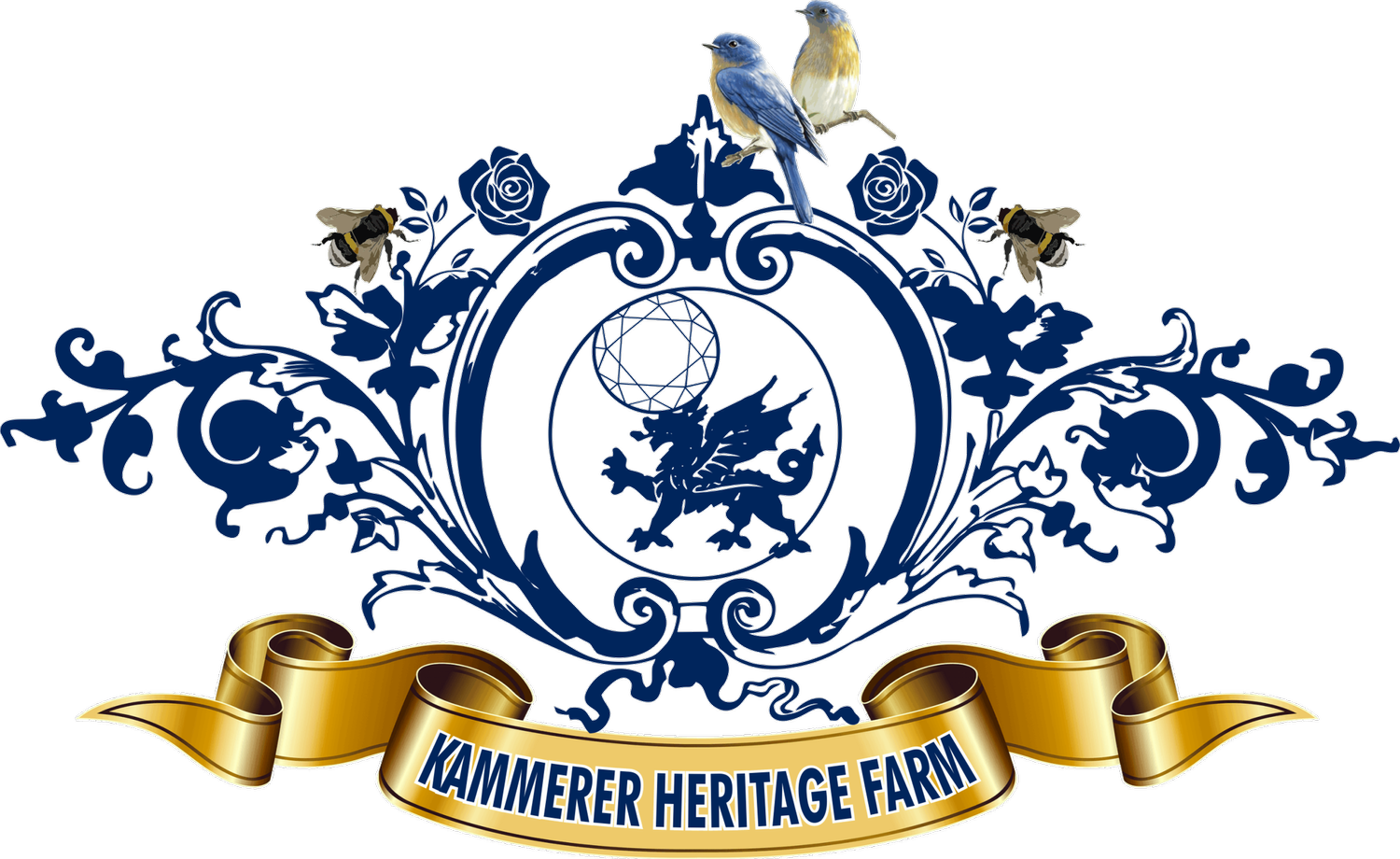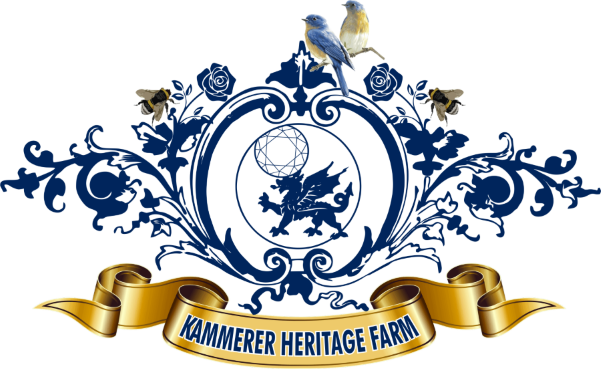Hatching Eggs
Shipping and Packaging :
There are challenges and uncertainty of shipping and handling and we do our utmost to package the fresh fertilized eggs in safe and secure packaging to ensure the best results. The orders are mailed out VIA FedEx shipping (unless otherwise requested) on Mondays and Tuesdays to avoid weekend delays.
Hatching eggs are available between March to early July to late August and even to mid November. ( weather pending) Once you have placed and secured your egg order you will be notified of the estimated delivery. Please remember that because of the many variables not in our control we are not, able to guarantee your hatch results! We do provide you with fertile, fresh eggs. Kammerer Heritage Farm eggs in our controlled environment have a hatching success rate of 80-89% success..
Cancellation Policy:
Orders can be cancelled with-in 1 week from the original order. If the order is delayed, for more than 60 days of the original estimated delivery date, a full refund minus a 10% processing fee will be issued with-in 7 days of the cancellation. Please remember that some years the hens are producing earlier and some years later on in the season so there is a 2 month allowance to complete your order. The website will be updated on the first of every month as to the availability.
Prepare for your eggs to arrive:
Is your incubator running properly? Set it up for at least 24 hours and test the temperature with a thermometer at various points in the incubator to make sure it's heating properly throughout the entire incubator. Check humidity and always put a secondary hydrometer for safety measures. For smaller table top incubators and 30%-35% for larger incubators such as the “Sportsman”
When receiving shipped eggs:
- Allow the eggs to settle and come to room temperature for about 12hrs.
- Place into the incubator.
- Candling at around day 12 is ideal, and again on day 18 to remove any dead embroils . Of course, remove any that appear to be smelly or cracked as soon as you notice them!
- Total incubation period of chickens is between 20-24 days.
- Eggs at all times should be handled with extreme care including not turning them or rotating them too quickly to ensure the embroil remains attached to both sides of the egg.
- For all poultry hatching eggs, stop the rotation of the eggs at day 18. And keep the temperature to around 37.6 degrees Celsius (99.7 F).
- For day 1-18 humidity should be 45-50% for small table top incubators day 19 remove eggs from the turner or stop turning them and increase humidity to about 50-60%.
- For larger incubators such as the “Sportsman” the humidity should be between 28-38% day 1 to 18 and raised from to 40-50% the remaining days till hatch.
- Typical incubation is 20-23 days with the majority hatching on day 21. Orpingtons are a very large breed so they may take a up to 24 days to hatch. Make sure that they are replaced in the same up down position after taking them out for examination. It is helpful to place a pencil mark “X” on one side of the egg so that you know which side to place them after inspecting. This way the bird is in the correct position for starting its first hole as they reposition themselves for optimum hatching around day 18. They may stay in the air sack for a day after they initially started to peck a hole near the top of the large side of the egg, so careful observation is crucial in your success. So late hatching birds may need gentle assistance in freeing itself from the shell . This takes experience and knowledge so its important to be prepared and well read up on this subject before the hatch is expected for the best results.
Day Olds Straight Run
Straight run is considered “as hatched” and “unsexed”. You may receive males and females and no representation is made about the identity of the gender. For example, if you order 5 straight run, you could receive 5 males and 0 females, or 5 females and 0 males or a combination of both genders. The general ratio is 50% male and 50% female however this may change from year to year. Some years will yield unusual ratios. Orpingtons are not offered as sexed day old chicks.
Happy Hatching!
Grow Outs
Grow outs are referred to a group of birds that are in various different stages between the ages of 2 months to 9 months. They may be offered as “Cockerels” which are young roosters, or “Pullets” which are young hens and not laying yet.
Hens
Hens are reliably sexed from 6-7 months of age and older and are very close to laying eggs or already laying eggs.
Pullet
Pullets are immature hens before they start to lay eggs usually under 18 weeks. Larger breeds mature later and can take up to 32 weeks before being productive.
Cockerels
Cockerels are young roosters less than 1 year old and not able to fertilize eggs.
Roosters
Roosters already display the distinguishing trademarks of a mature male and are ready to be a productive member of the flock. They play an important role to protect the flock from imminent danger both from the ground and air. The warnings are different for air threats with a high pitch warning and you will see the hens run for safety under bushes or in the pen. It is not advised to have more than 1 rooster per 4 hens however with Orpingtons, you can safely put several Roosters in one pen separated from the hens with-out much concern as they will easily get along with each other. It is best to introduce several new Roosters to a pen at night and in the low breeding season for the most harmonious integration with other Orpington Roosters.
Barnyard Yard Mix
These are a group of winter hardy none pure breed, mixed poultry. Most hens are eggers and will provide a steady source of fresh farm eggs for several years to come for the homestead. No representation of appearance or show quality is made. Most of these birds are suitable for the small backyard pets and not of breeding quality. You may be surprised from time to time to have a pure blood line mixed in with this group. Keep in mind that hens will resume with egg laying once they have acclimatized to their new surroundings. It is optimal to introduce more than one new bird at a time in the flock and at night. That way no one new hen gets all the unwanted attention from the established flock.
Adoptions
These birds are free to a good home and not intended for the dinner table! They make great pets and are either handsome Roosters or older hens who are looking for a retirement home to spend the “rest” (pun intended), of their lives in your back yard to foraging, scratching and generally entertaining to watch and love. Consider taking these birds as therapy animals. All the while they will be earning their way by fertilizing and keeping the bugs out of your garden. It’s a win win for all!

